An A to Z Guide on HVAC Replacement
Enjoy reading the latest DIY articles and saving money?
Receive our latest helpful hints, tricks and savings, directly to your inbox.
Posted August 13, 2021
You might think winter is the worst time for a heating and cooling system failure. What about during the warmer months when temperatures hit triple digits? No time is a good time to face the possibility of an HVAC replacement!
Whether it’s during the deep freeze or the dog days of summer, you’ll feel better about HVAC problems if you have answers to your most pressing questions. This guide does just that!
Take a few minutes and learn what to do if you think your current system is nearing the end of its useful life.
Do I Even Need an HVAC Replacement?

Replacing an HVAC system represents one of the most significant investments a homeowner will make. It’s normal to question whether your system’s time is up, or whether you can get a few more heating and cooling seasons out of it.
It’s always possible, with a few more repairs, your current HVAC system still has a few years of service left. That said, if you live in your home long enough, you will eventually replace rather than continue making repairs.
Here are three ways your system lets you know it’s time for an HVAC replacement.
Age
If your system is 12-15+ years old, it’s likely nearing the end of its useful HVAC lifespan.
Repairs
If you make repairs every year, especially the same repair, consider pricing a new system. If you’re facing a repair today and the cost is more than half the cost of replacing the system, replacement makes more sense.
Energy Bills
If you track your energy bills, you already have a good idea of what to expect season after season. An unexplainable rise in energy bills can indicate a decline in performance due to age.
Even with routine maintenance, an aging system will need replacing.
Must I Replace the Entire HVAC System?
What do you do if you need a new furnace, but the AC seems fine (or vice versa)? Most homeowners want to know whether they can replace one without replacing the other. After all, who doesn’t want to save money?
Replacing only one part of the system may save money today, but that decision could result in a costly future service issue.
Not replacing the entire system means you’ll operate a mismatched system. That system might not give you the performance you need to heat and cool your home efficiently.
For the best system performance and longevity, it’s usually better to replace all components together.
Are Those the Only Signs?
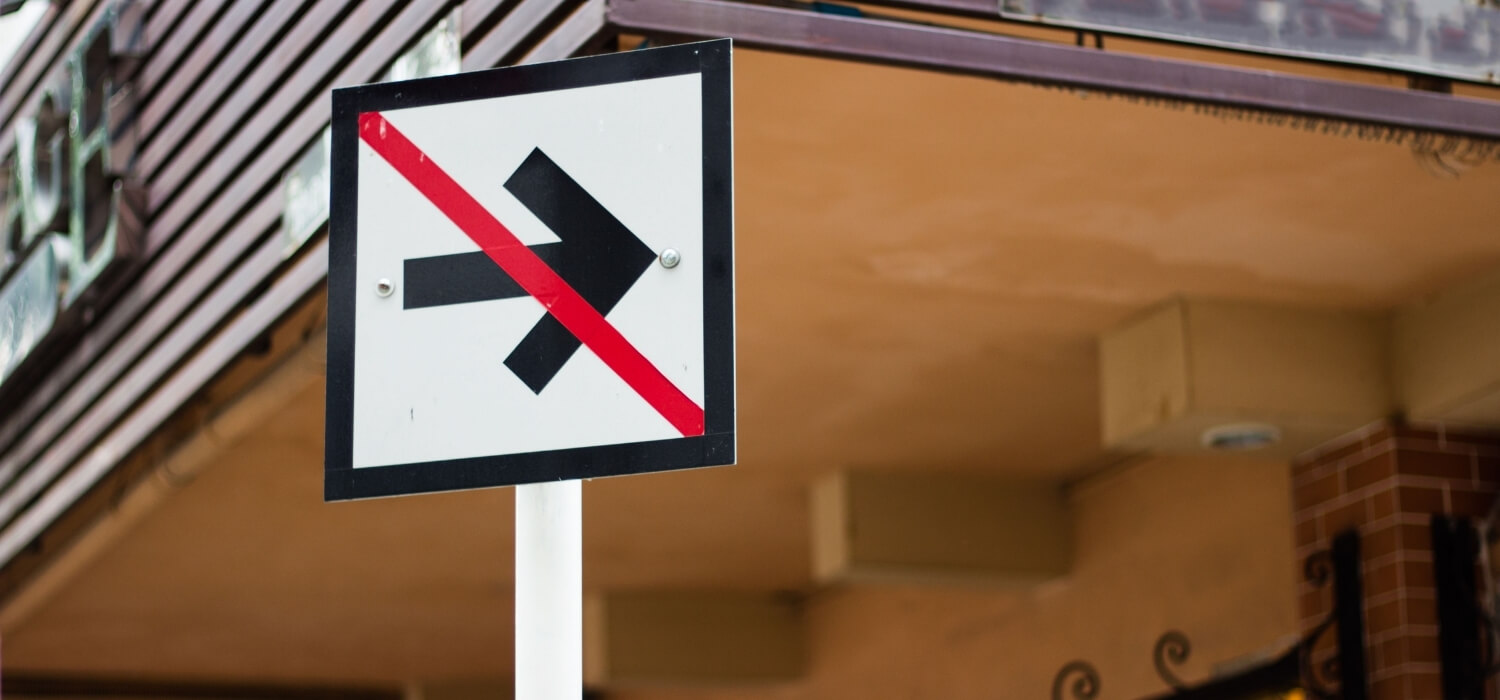
It’s incredible how well your senses can alert you when something isn’t quite right in your home.
For example, if you hear your HVAC system making squealing and grinding noises, pay attention. A healthy system operates quietly. Sure, you’ll hear it kick on and off, but anything other than the norm indicates trouble.
Sometimes HVAC systems smell. You could have a dirty filter or mold buildup on the AC evaporator coil. If you smell an electrical or burning odor, you may have a more serious problem.
The only way to know whether you need an HVAC replacement is to contact your HVAC technician and have them inspect the system.
Ready to Talk Budget?
Even if your system runs fine today, it’s always a good idea if you can plan for an eventual replacement. For the homeowner facing an imminent replacement, here are a few things to consider.
You’ll have an opportunity to see several different types of systems. Choose the one that gives you the highest possible return on investment (ROI). ROI is about more than the upfront cost.
An energy-efficient system can help lower your energy costs. If you choose a gas-fired furnace, you’ll save on heating fuel and electricity. To maximize energy savings, budget for a system with a SEER (Seasonal Energy Efficiency Ratio.) rating higher than 14.
Have the ductwork inspected before you buy the new system. If it needs attention, you’ll want to include that in your budget so that you don’t have costly surprises at installation.
If your system gives you a surprise and your budget isn’t ready for the expense, check with your HVAC service. Most companies offer financing with reasonable terms.
Is a Bigger System Better?
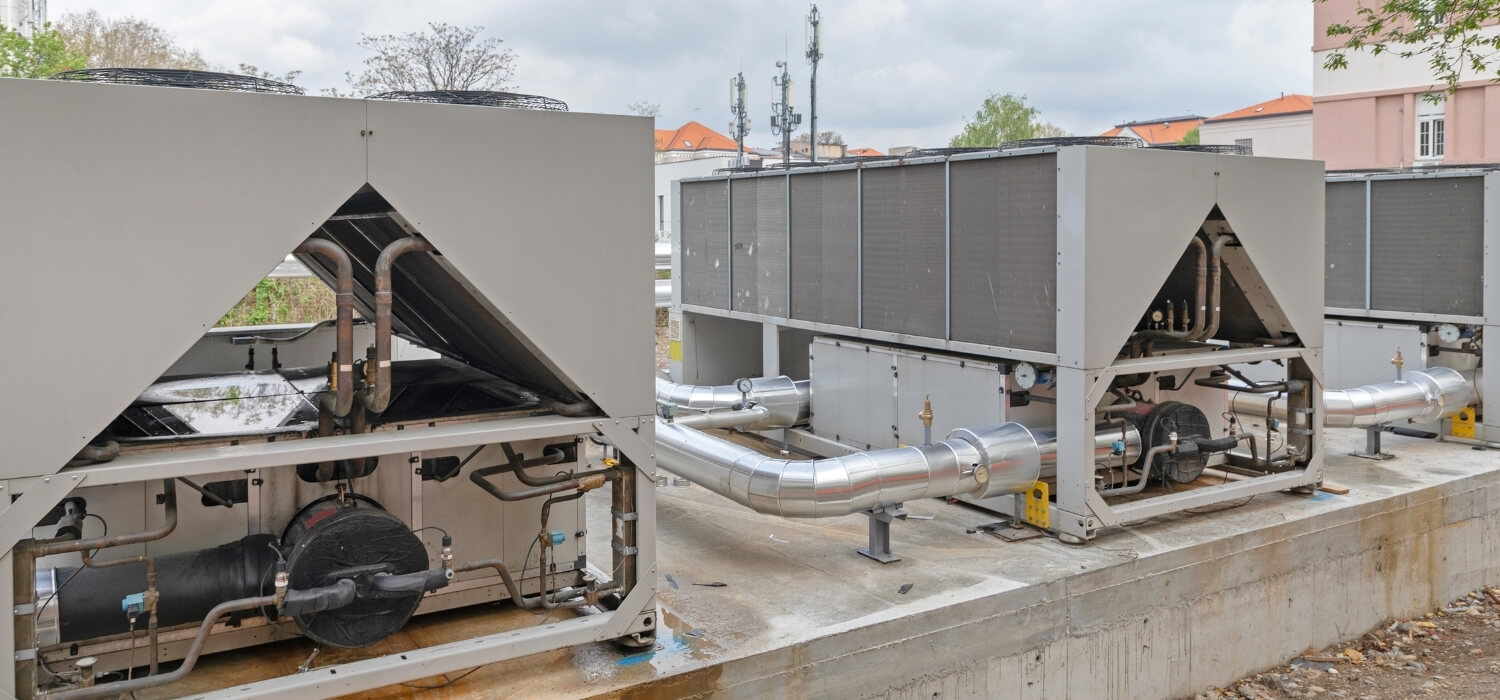
If you’ve ever walked down the HVAC aisle at your local home improvement store, you likely saw at least a few different sized furnaces and AC units. You might think there’s a correlation between size and cost. You’re correct—partially.
There’s a more significant correlation between size and heating and cooling capability. Take things one step further, and you’ll find a direct relationship between performance and a system sized correctly for your home
If you install a system that’s too small, you’ll experience inadequate heating and cooling performance during extreme weather. Buying too big is almost worse than going too small.
If you think along the lines of “go big or go home,” you may regret paying more for a system that’s too large. Bigger is only better if you don’t lose temperature and humidity control.
An oversized system will keep the house warm or cool no matter how extreme the outside temperatures get, but it will cost you.
First, the house will likely feel less comfortable. Some rooms may warm-up or cool off quickly—to the point where it’s uncomfortable. If your home isn’t well-insulated, your system may cycle too frequently, which hampers performance.
Your oversized system may also run less efficiently because it won’t reach peak efficiency quickly enough, which results in higher operating costs.
Before you select your system, your contractor should do a detailed load calculation. Then you and the contractor can choose equipment with the proper capacity.
Anything I Can Do to Save Money on the New System?
One thing most people don’t realize is that they can save money on a new HVAC replacement before they even shop for one.
Before you choose your new system, think about making a few strategic energy improvements. Consider them a tune-up for your home in preparation for the new HVAC system.
For example, inspect your home for cracks around windows and doors. Seal them with caulk or foam sealant. Do the same with holes or gaps in walls, floors, and ceilings.
Consider upgrading attic insulation to R-38. Also, make sure you don’t have any openings from your attic into your home. Check around air ducts and chimneys and seal if necessary.
Making a few changes toward home energy efficiency may mean you can install a smaller, less expensive system.
How Do I Choose My New HVAC System?
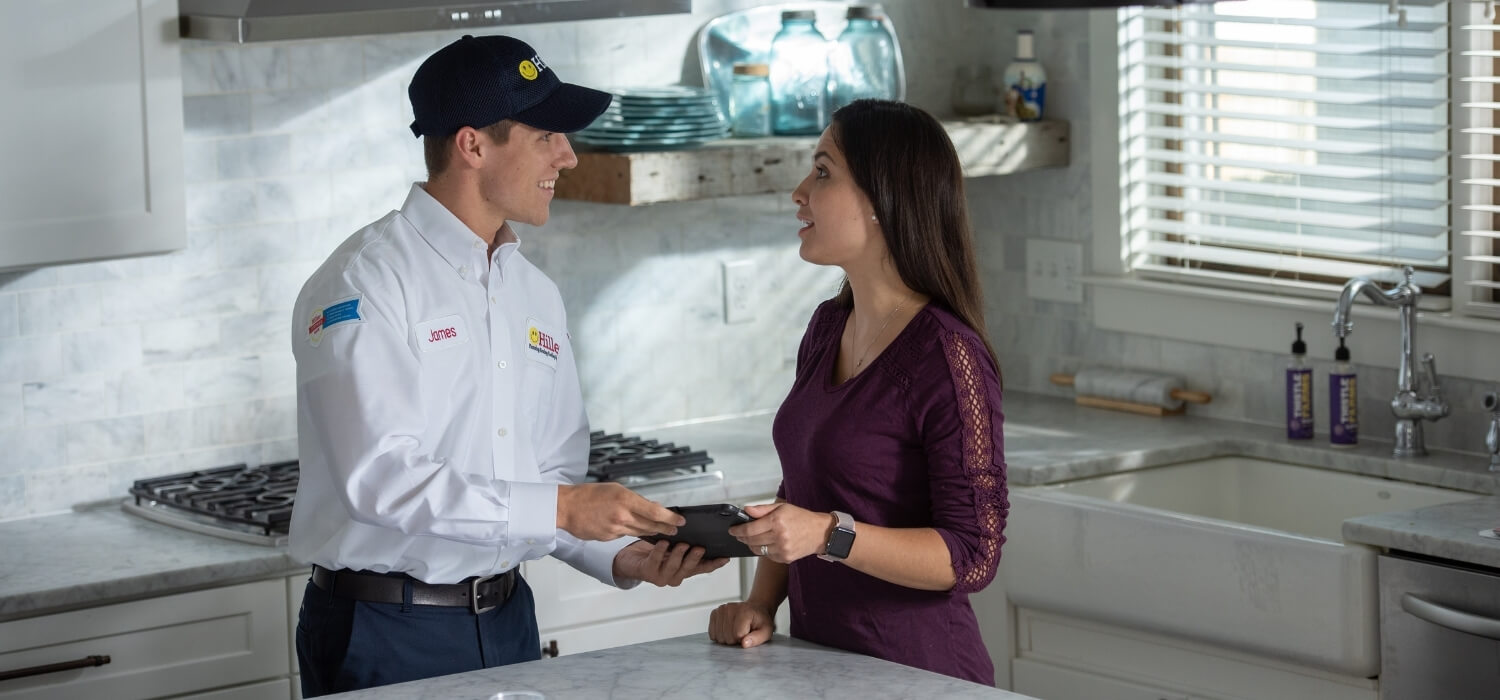
Don’t let the many available HVAC systems overwhelm you. Stick with the basics and ask your local HVAC professional to talk to you about the major features of each one. The most common HVAC systems include:
- Gas Furnace
- Forced Air
- Heat Pump Forced Air with AC
Another option is a heat pump paired with a backup furnace (for colder climates).
Remember when we mentioned SEER earlier? This number measures cooling system efficiency. All cooling systems on the market today must have a minimum SEER rating of 13.
Another rating used in the HVAC world measures the efficiency of heat pumps—Heating Season Performance Factor (HSPF). If you go with a heat pump, look for one with an HSPF of at least 7.7.
You will notice systems with higher HSPFs and SEERS have a higher upfront cost. They make up for the higher initial cost with much lower operating costs than those with lower ratings.
Is My Ductwork Still Good?
We also touched on ductwork earlier in this post. Let’s explore that a little further now.
Before you get too far into planning for an HVAC replacement, you should have the condition of your ductwork verified. Any gaps or issues with inadequate insulation may negatively affect the performance of the HVAC system.
Instead of delivering air from the furnace to the rooms in your home, damaged ductwork allows air to escape. For some repairs, you can apply a simple fix with duct tape. If you find crushed areas or broken joints, you may need to replace entire pieces of ductwork.
Your HVAC installation crew may find areas where they need to modify ductwork. Any major repairs or modifications could impact not only the cost but project completion time.
Ask your HVAC contractor to give your ductwork a thorough inspection before the project begins so that you have a heads-up about the potential for added cost.
Will I Need a New Thermostat?
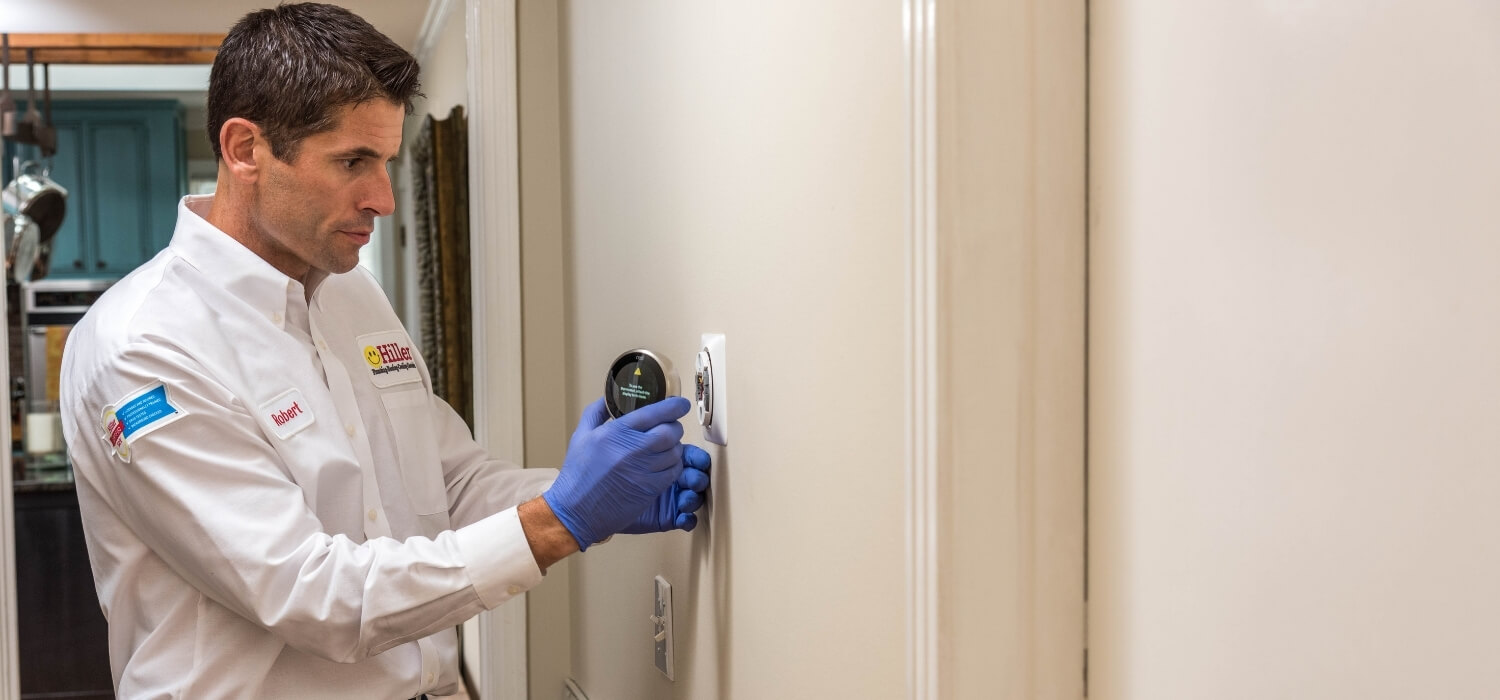
Most HVAC techs suggest replacing your thermostat when you update or upgrade your heating and cooling components.
Consider the role the thermostat plays in your system. The thermostat acts as control central for both the heating and cooling functions. It tells the system when to turn on and when to shut down. If you’ve ever had trouble with your system running too much or not enough, chances are, you had a problem with the thermostat.
Replacing the thermostat when you install the new HVAC system can help the system run as efficiently as possible.
What kind of thermostat should you buy?
Today more and more homeowners install either programmable or Smart thermostats. These modern thermostats offer a wide range of benefits, but they’re popular mainly because they help manage energy costs. Many homeowners like Smart thermostats because they can program them even when away from home.
Ask your service technician for thermostat recommendations.
How Do I Prepare for Installation?
Your HVAC crew will do most of the work involved with installing your new system. They’ll deliver the components, remove the old one, and get your new system installed and wired.
Before installation, consider scheduling an energy audit. This is the best way to find out if you have air leaks or areas where you need better insulation. It also goes along with our recommendations to tune-up your home’s energy efficiency.
Sealing any air leaks and upgrading insulation is one of the best things you can do to prepare for the installation of your HVAC system.
The day before installation begins, make sure you clear the way for the installation crew. If you store boxes in the area where they’ll need to work, move them. Maybe you have a combination utility/laundry room. If so, remove laundry baskets and anything else that could get in the way of the crew.
Finally, put pets in an area where they can’t escape and interfere with the crew’s work. If you have small children and it’s a cold time of the year, consider a play date at a friend’s home.
Dealing with the Unexpected
Any time you start a home improvement project, you should also prepare for unplanned expenses.
Your HVAC company will give you a written estimate. Your contractor will do their best to cover everything you’ll need in their initial estimate. There are often things they can’t assess until they begin the project.
No one looks forward to unplanned expenses or a project taking longer than anticipated. If you prepare for the unexpected, and everything goes as planned without a hitch, you’re one step ahead.
How Do I Maintain the New System?
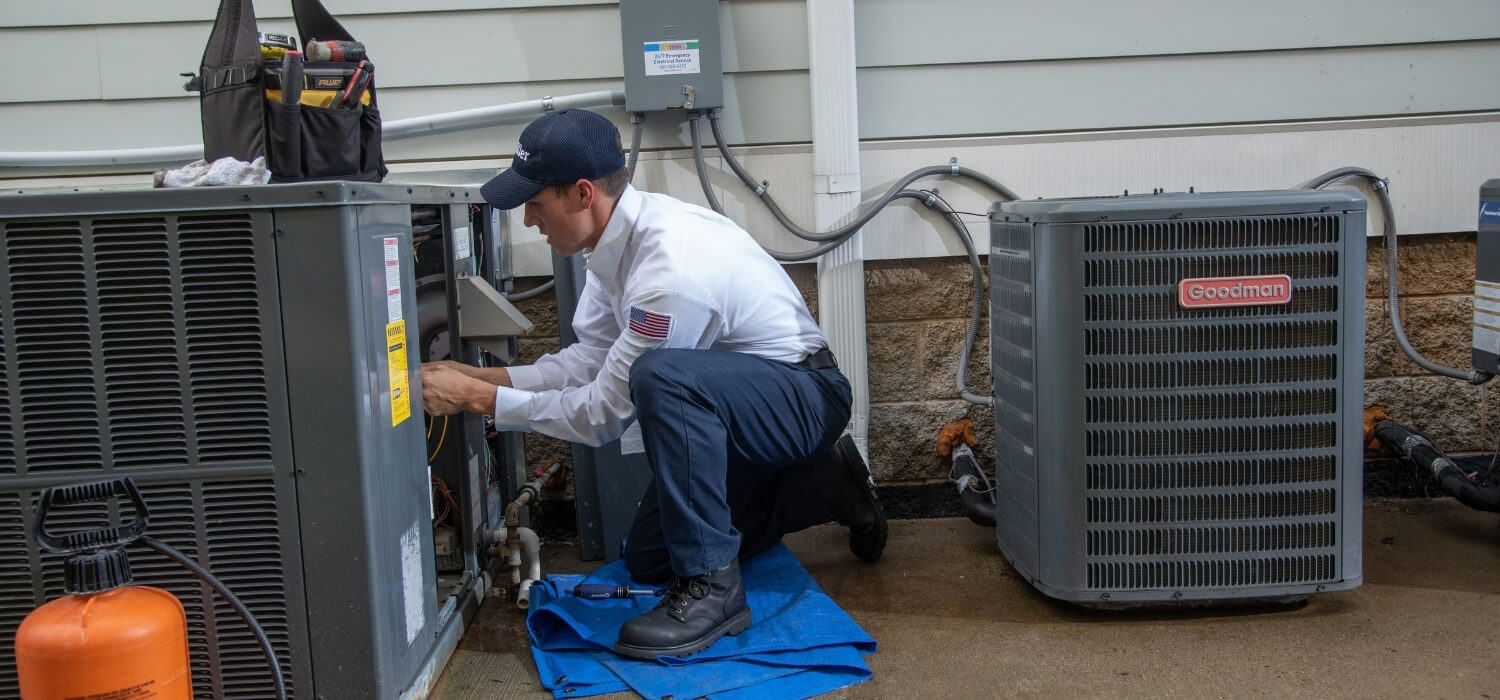
After they finish the HVAC replacement, the lead installer or crew foreman will take you on a tour of your new system. They should show you how to operate the system and give you the owner’s manuals.
Make sure to ask which air filters you need and how often they recommend changing them. Also, ask them about their maintenance plan. Most HVAC companies offer annual or semi-annual maintenance plans, which include inspection, cleaning, and tune-up.
Taking care of routine maintenance is the best way to get the most out of your new HVAC system. Be good to it, and it will give you many years of service.
Ready to Schedule HVAC Replacement?
We hope we’ve answered at least a few of your questions about choosing and preparing for an HVAC replacement. If we’ve missed something and you’re still looking for answers, we’re here to help.
If you’re ready to schedule your new HVAC installation, contact us today! We’re also available for repairs and routine maintenance.
 Daily Promotion
Daily Promotion
0% Interest for 12 Months on Select New Tankless Water Heater
Purchase Select New Tankless Water Heater & Receive 0% Interest for 12 Months. Click below to see financing terms.
Get Promotion